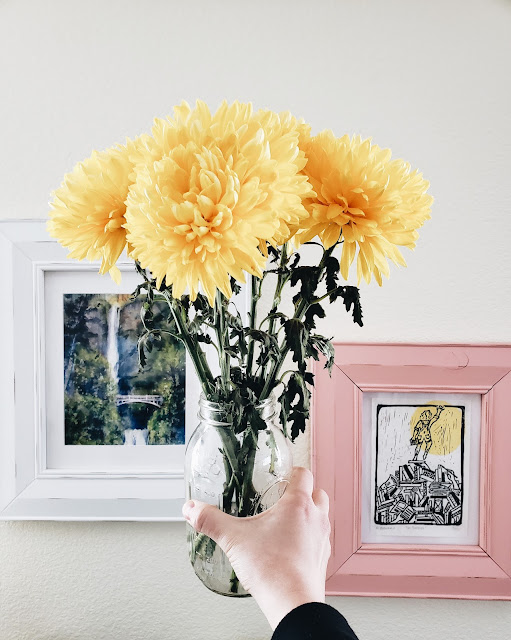A Bonus Summer
These days-turned-weeks-and-months of isolation and quarantine have absolutely worn me out. After graduating last week, I never wanted to log onto another Zoom call again. The post-grad blues hit a little harder when there's a global pandemic. And, I sprained my ankle running. I was furious with myself that I made it through four years of a rigorous dance program with little to no injury, and three days after graduation I was couch bound thanks to a clump of grass.
A mentor told me to take time to rest after graduation, to enjoy what they called this "bonus summer." Technically, I was supposed to be working a job all summer and then moving to NYC in the fall. With all that on hold, I despaired over these warm months of endless nothing. But the more I thought about it, the more I realized this idea of a "bonus summer" is the perspective I need to adopt. Rather than focusing on the cancellations and what I think I should be doing, I need to take this summer for what it is - a worldwide pause.
Part of this has required me to reevaluate what I do for fun and for self-care. I gleefully told that mentor my self-care practices were writing and dancing, and when they told me self-care cannot overlap with my career, it sent me for a bit of a tailspin. In studying dance and English, I made my hobbies my career, which is a huge blessing in itself because I absolutely love what I do. In the meantime, however, I eliminated my biggest sources of stress relief.
A self-care practice I've returned to while icing my sprained ankle is reading for pleasure. My reading habits have been almost entirely dictated by my education for the past, er, nineteen years, so I am so excited to be able to pick up any book I want this summer. No more Charles Dickens!
With the lack of church services and being separated my spiritual community on campus, I have been particularly drawn to religious and ethical texts. After watching a few sermons from Denver-based Lutheran pastor Nadia Bolz-Weber on Instagram, I decided to read her book Accidental Saints. Bolz-Weber's confessional style and stark honesty about her own faults as a pastor was so refreshing. I loved her willingness to let theology and faith be messy and full of love.
In a recent sermon on Instagram, she talked about how she turned to writings of former prisoners of war and wrongfully imprisoned people to find meaning during this pandemic that continues to stretch on and on. One of the prisoners of war talked about how the optimists did not survive living in prison camps. Every time they thought they would be freed and it failed to happen, the blow weakened their spirits. Instead, it was the pessimists, the ones that accepted that they may never escape, that lived to see life after the camp. (As a not-so-optimistic person myself, this was a bit of a comfort.)
But living as if this pandemic will never end is not very comforting. This is where the perspective of the wrongfully imprisoned is important.They all echoed the same thing - in order to survive years behind bars and even on death row, they had to make every day worth living, even in prison. When I heard that, I felt a bit guilty about my immense privilege in comparison to someone in prison. I'm safe and healthy, well-fed and financially secure living with my parents. Yes, many of my life events have been cancelled or altered, but my life is still pretty darn lovely.
During a recent conversation with some of my friends, we all noticed we have to give ourselves the permission to be happy and to rejoice. In part, this requires recognizing the great privilege this is right now - there are so many frontline workers who do not have the ability to rejoice or relax. And it is equally important to not punish ourselves for small bits of happiness in this already difficult time.
I am setting out to make this bonus summer one worth living. It will take a bit of creativity and flexibility on my part, but that is what being a dancer is all about.



Comments
Post a Comment